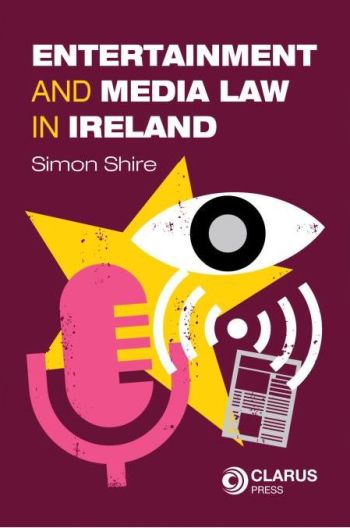
Entertainment and Media Law in Ireland is the first textbook of its kind in Ireland, collating a wealth of domestic and international legal sources which impact the sector. It addresses the myriad practical considerations when developing, producing and commercially exploiting content. Creative practitioners and business/legal advisors alike are equipped with a series of signposts in the form of best practice procedures as summarised from a hands-on, practical perspective. The work is presented in straightforward language for market entrants while simultaneously citing legislation, EU/international law and case law precedent from Ireland and a number of other common law jurisdictions for the benefit of its more industry-experienced audience.
With 36 chapters divided into six parts, this body of work covers an extensive range of topics from business set-up and risk mitigation to effecting policies of production and professional indemnity insurance. It explores copyright, performer rights and moral rights, funding and distribution of films and television output, legal clearances, data protection and privacy, life rights, trademarks, music law and the regulation of audiovisual content, together with the legal and ethical issues affecting present-day journalism and broadcasting.
Entertainment and Media Law in Ireland draws on the author’s substantial legal experience as well as his deep appreciation and in-depth understanding of music, television, film, stage and other production output. The book emerged from a discovery of the dearth of authoritative sources available in this specialist field of law and the author’s yearning to provide a one-stop resource to plug this unsustainable lacuna for the benefit of Ireland’s burgeoning audiovisual market.
Entertainment and Media Law in Ireland is aimed at persons engaged in entertainment and media services, be they producers, broadcasters, production company directors, online content providers, accountants, event organisers, music producers, radio personnel, journalists, filmmakers, theatre directors, music composers or film crew. The book will also serve the needs of film, media and law students, entertainment law practitioners and all those seeking to up-skill in this ever expanding sector of the economy.